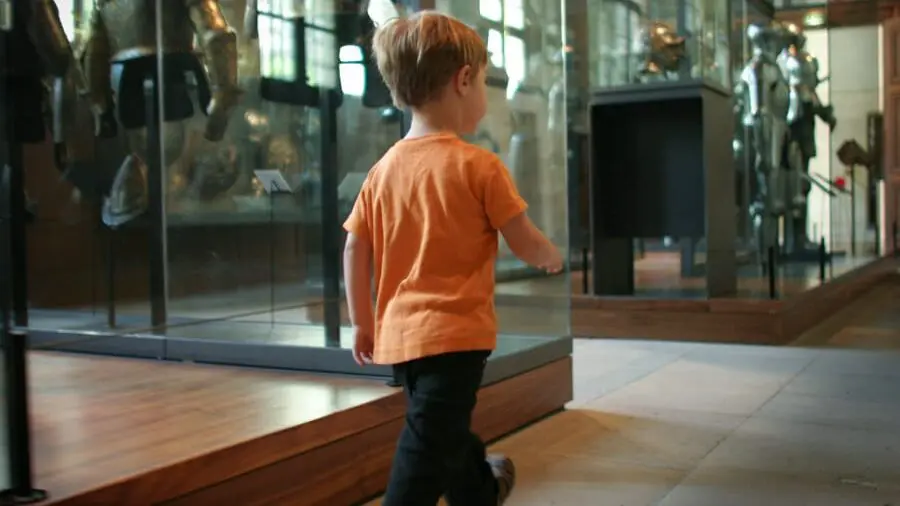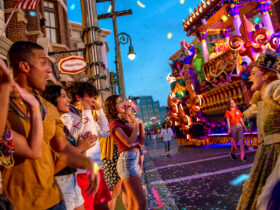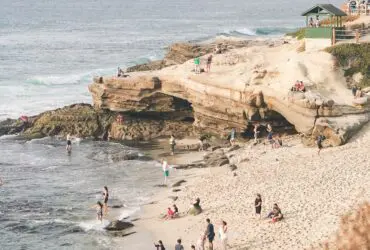I love long drives with my family because they’re great for unhurried conversations. On a recent road trip visiting grandparents, my husband and kids and I started chatting about travel, and we got on the subject of flights. My 12-year-old brought up the topic, so I knew he’d give me a real answer when I asked him, “What’s the first flight you remember?”
He thought for a minute, going back as far as he could in time, and settled on a memory of a long flight that we took when he was five years old. Which seemed about right, given that kids start developing permanent memories at about that age. But then he said something else, something I can’t stop thinking about.
“On that flight, I also remember remembering the other flights I had taken,” he said. “I knew about airplanes because I could remember being on one when I was younger, even though I can’t remember those flights now.” Even though he could no longer remember the original memory, he remembered remembering it and was able to learn from those moments. That thought both delighted me and also melted my brain a little.
MULTI-GEN MAGIC: Vacations to please grandparents, parents, and kids (at the same time
His answer made me remember something my aunt told me when her kids were teens and mine were babies. She’s one of those super-intrepid parents who traveled voraciously even when her kids were young. She said traveling with her kids when they were too young to remember helped them develop a sense of curiosity and an adaptability they carried with them as they grew.

She also had a theory that was surprisingly close to what my son was describing—the idea that just because something doesn’t make it into the permanent memory bank doesn’t mean it’s not held onto in a way that’s just as formative as the memories you get to bring with you into adulthood.
I wish I could reach back through time and give past me a reassuring squeeze.
I’ve been playing with this idea ever since, thinking about this long-short-term memory as stepping stones, one connecting to the next before each fades back into the sea of non-memory. And that in each of us, this sea upon which all our memories float actually buoys these recollections with the feelings and impressions that make us.
TRIPS TO REMEMBER: 50 best family vacation ideas for all ages
I’ve heard about this idea in relation to trauma, the way that bad things that happen in early childhood can shape nervous systems, lifelong health, and our subconscious understanding of the world.

But I also like thinking about other possible early things in the mix, experiences like airplane rides and adventures long faded from active memory. Because honestly, it’s no small effort to bring a baby or toddler on vacation and it’s nice for parents to have a sense that travel with young children is meaningful.
REAL RECOMMENDATIONS: How to choose the best Beaches resort, according to real travelers
Every time I see a carseat-lugging, suitcase rolling, diaper-bag toting parent sprinting down an airport concourse after a toddler on the loose, I remember the challenges of those days. This idea feels like a sign that these flights, vacations, road trips, weekend adventures, and more generally the hugs, tuck-ins, and stories before bed, that these are things they can build on.
And in a time-bending way, this feels like a sign to Past Me, that bedraggled and exhausted but also proud traveling parent of a baby and a toddler. I wish I could reach back through time and give past me a reassuring squeeze and a hint that when my then two-year-old son was looking out the airplane window murmuring “Cloud, cloud, cloud” quietly to himself as we soared above a white puffy blanket up into the blue sky, that this and a thousand other moments would be gently woven not into his conscious memory, but into something bigger, the very net that holds it.
More from FamilyVacationist:
- Kids sail free on these cruise lines
- 15 best all-inclusive resorts for families of 5+
- Best adults-only all-inclusive resorts in the Caribbean













